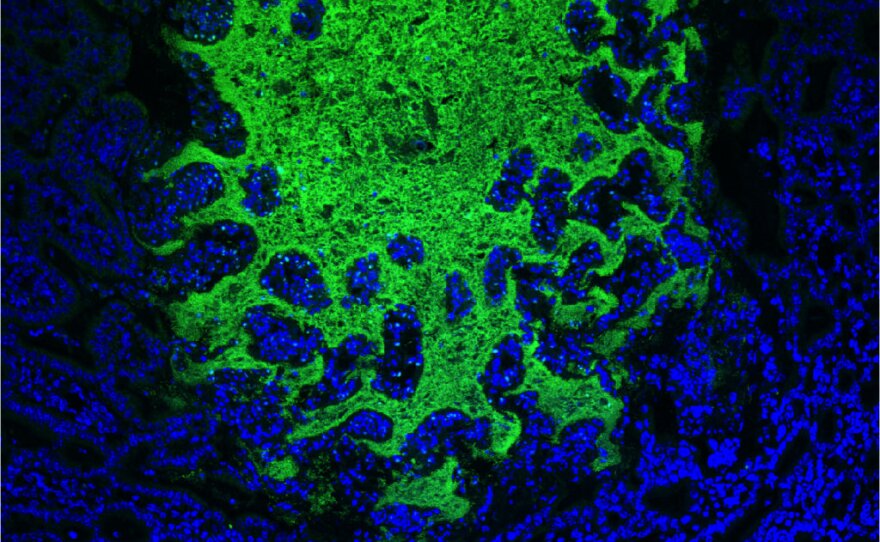The Obama administration is beefing up the effort to understand the tiny microbes that live in humans and the environment.
San Diego scientists attended an event at the White House Friday announcing the National Microbiome Initiative. They outlined their plans to contribute to the project.
"It’s an exciting field that’s moved probably further and faster than any other in history," said La Jolla scientist and entrepreneur J. Craig Venter, who played a crucial role in sequencing the first human genome.
Agencies from the National Institutes of Health to the Department of Agriculture plan to devote $121 million in new federal funding toward microbiome science over the next two years.
Private organizations are also making contributions to the field, with the Bill and Melinda Gates Foundation pledging $100 million over the next four years.

Separately, UC San Diego is putting $12 million in new funds toward its Center for Microbiome Innovation. Its focus will be on improving technology for analyzing microbiomes, cutting down on the time it takes to sequence and interpret microbial samples.
Karen Nelson, president of the J. Craig Venter Institute in La Jolla, led a panel at the event featuring "innovators" in microbiome science, including UC San Diego’s Rob Knight. His lab does gene sequencing on these complex populations of bacteria, viruses and other microorganisms — whether they're found within the human gut, on zoo animals or in prairie soils.
Knight said rapid advancements in sequencing technology have made it easier and cheaper to characterize microbiomes, and now scientists have to confront the challenge of making sense of all the data.
"We have to be prepared for this era of ubiquitous sequencing, where the idea of doing sequencing is going to be as routine as taking a photo with your phone," Knight said.
To date, many studies have found strong associations between human health and the diversity of microbes found throughout the body. But questions remain about how specific microbes promote or harm health, and how scientists could target these microbes to treat disease, improve food production or develop new fuel sources.
The focus of the National Microbiome Initiative won't be limited to the human microbiome. It also aims to fund researchers taking a closer look at the microbes living in the ocean, in soil, in animals, on crops and in the built environment.
Knight argued it won't be enough to simply compare and contrast various microbiomes; scientists will need to establish how exactly microbial communities work.
"As we're getting into clinical, agricultural and other applications that really matter, we need to find out what's actually true rather than what's different in different communities," he said.
Knight, along with UC San Diego's Pieter Dorrestein and other researchers, called for a unified microbiome initiative in the journal Science last year.
The initiative adds to the Obama administration's other "moon shot" efforts, including the Precision Medicine Initiative, which aims to tailor health treatments to people's unique genetic traits, and the BRAIN Initiative, which seeks to develop new methods to understand the workings of the human brain.
The American Gut Project, housed at UC San Diego, said it plans to deepen ties with local fermentation clubs to better understand how consuming fermented foods and drinks can effect the human microbiome. KPBS recently covered efforts by UCSD researchers to sequence participants at the San Diego Fermentation Festival:






